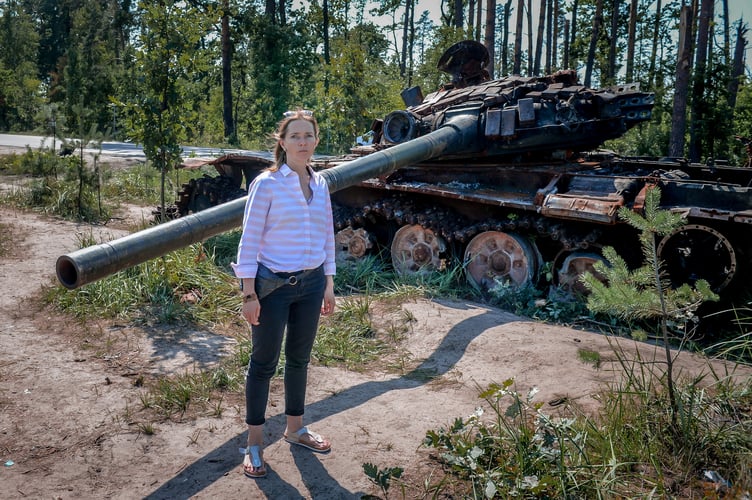A growing number of Ukrainian families living locally are finding themselves locked in a struggle to secure stable housing after leaving their host families – with some even resorting to returning to their war-torn homeland and the daily threat of Russian bombs.
Natalia Sharomova, a talented photojournalist and mother of two, arrived in the UK from Kyiv in April 2022, seeking safety and a better life for her family while her IT developer husband remained in Ukraine waiting for a call-up to the military.
However, despite Natalia’s professional skills and determination, she is now grappling with the challenges of finding private accommodation or a new host family.
Natalia and her children are indebted to the hospitality of their hosts in The Bourne, Farnham, and they have a close bond – attending church with them every Sunday. But 16 months on, changing circumstances require the family to seek alternative accommodation.
This is where Natalia has become stuck. The cost of renting a home in Farnham is prohibitive, there is a shortage of available properties and agents require a guarantor to pay the rent if they don’t.
She will not qualify for social housing until her family becomes officially ‘homeless’.
And so Natalia feels her only option is to find a new host family or – as some of her friends have already been forced to do – return to Ukraine.
Having only recently returned from a trip home to Kyiv, where Natalia says she was convinced she would die every time the air raid sirens sounded in her home city, she is reluctant to return.
Natalia’s story is emblematic of the difficulties faced by many Ukrainian refugees who have arrived in the UK under the Homes for Ukraine scheme.
This scheme, launched a year ago, was intended to provide refuge and support to those affected by the conflict in Ukraine. However, as the conflict continues, many refugees, including Natalia, are finding it increasingly challenging to transition from the initial accommodation provided by host families to more permanent living arrangements.
According to a recent survey conducted by Generation Rent and the charity Opora, which supports Ukrainians in the UK, nearly half of Ukrainian refugees have been unable to secure rental housing because of issues such as lack of guarantors and funds for tenancy deposits.
The situation has been exacerbated by the fact some British host families, initially committed to accommodating refugees for six months, have been unable to extend their support, resulting in Ukrainian refugee households being classified as homeless.
Natalia's situation highlights the pressing need for a more comprehensive and sustainable approach to supporting refugees in securing independent housing.
While the Homes for Ukraine scheme has been celebrated for its successes in providing refuge to a significant number of Ukrainian refugees, local organisations and advocates are calling attention to the practical difficulties that refugees face in finding housing after their initial support ends.
With a 44 per cent increase in homelessness among Ukrainians in the last month, according to the Local Government Association, it is evident that urgent measures are needed to address this growing crisis.
See next week’s Herald for a full interview with Natalia and photos of her trip home.





Comments
This article has no comments yet. Be the first to leave a comment.